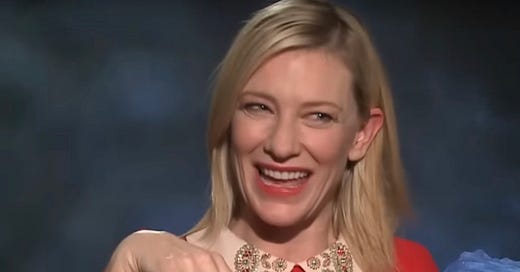Is the Press Junket a Broken Model?
"Acting is like sex — do it, don’t talk about it.” — Joanne Woodward
During a recent interview with Glamour Magazine, Academy Award-winner Lupita Nyong’o was asked what irritates her most about being an actor. “Interviews,” she responded. “You asked. I have to be honest.” Not all interviews, she clarified, but specifically press junkets, which she likened to a “torture technique.” Why? “You have to give each one of them attention, focus, and an articulate answer that you just gave to the person before. That’s irritating.”
She’s not alone in that thought pattern, and far from the first to speak out on it (we’ll do a dive into past precedent), but let’s start by getting into what a press junket actually is, and how it differs from a traditional interview.
In the 1999 film Notting Hill, Hugh Grant’s character is mistaken for a journalist when he goes to visit Anna Scott (Julia Roberts, of course) at The Ritz and must think on his feet. The room is overflowing with white roses and lilies, Scott is relaxed, cool as a cucumber, and they’re left alone to chum it up. That’s the movie version of a press junket. The reality is a stark contrast.




